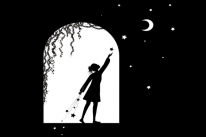![]()

When I first sat down to write this piece for 5 Rules for Life, I wrote “Live without rules” five times, each followed by a reason to keep your approach to life flexible.
The way you live is largely a reflection of where you’ve been, who you’ve been, and the beliefs you’ve formed. Who am I to create a cookie-cutter hard-and-fast code that makes sense for everyone?
That’s when I realized I’d need to make a sixth rule to introduce these ideas: judge my words, and anyone else’s, against your own reason and moral code.
Buddha said, “Believe nothing, no matter where you read it, or who said it, no matter if I have said it, unless it agrees with your own reason and common sense.”
The Dalai Lama echoed that sentiment with, “The ultimate authority must always rest with the individual’s own reason and critical analysis.”
Be critical. I invite it. These ideas help me, and they may or may not help you.
With that, I give you five guidelines that have helped me feel happy, fulfilled, and meaningful:
1. Be honest with yourself.
One of the most valuable skills you’ll learn in life is the ability to call yourself out—when you’re playing it safe because you’re scared to fail, for example, or closing off your heart because you’re afraid of being hurt.
In the moment it feels comforting. You can do what you’ve always done instead of pushing yourself into unfamiliar territory. But we tend to regret the things we didn’t do more than the things we did. So get real with yourself and get going.
2. Let yourself be vulnerable.
I once felt there was nothing more terrifying than letting go of control. I held a tight grip on who I really was because I wanted to shape other people’s perceptions of me. I had a very limited list of approved adjectives: smart, kind, talented, successful, awesome.
I don’t love knowing someone may form a different opinion of me, but it’s liberating to honor where I’m at in any moment, and let people decide for themselves what they think about that.
When you’re willing to be seen as someone who makes mistakes and has flaws, you’re essentially telling yourself being human isn’t something to be ashamed of.
People may sometimes form judgments. But they’ll respect your authenticity, and they may learn to let go a little themselves—something that can be a tremendous relief.
3. Live in accordance with your values.
Everyone has a different idea of what’s important and what it means to be a good person. If you try to align your life with someone else’s values, you’ll likely feel unfulfilled.
If your main source of joy is spending time with your family, would it really make sense to take on a high-paying job that limits the time you can spend with them?
Make a list of the cornerstones of your happiness and then take an honest inventory of your current situation. Does it parallel the priorities you listed?
4. See as much as you can of what’s right in front of you.
People often live life caught in two mental strongholds: regret for the past and worry for the future. In looking back on the years I’ve lived so far, I know I’ve spent more time engaging in those activities than truly being present.
Whenever I catch myself, I check in with my five senses and experience what’s in front of me as fully as I possibly can.
I notice the details. Hear the sounds. And seep into the moment. I know I won’t do this all the time, but it adds up to create more time truly living in the now.
5. Treat yourself like you want other people to treat you.
It happens all the time. You don’t get a job, so you start reviewing all your failures. You hurt a friend, so you start beating yourself up.
We make mistakes and we always will. As long as you acknowledge them, make amends as best you can, and learn from them, there’s no reason to stop treating yourself with kindness.
Other people will take their cue from you. You decide how you deserve to be treated.
About Lori Deschene
Lori Deschene is the founder of Tiny Buddha. She started the site after struggling with depression, bulimia, c-PTSD, and toxic shame so she could recycle her former pain into something useful and inspire others to do the same. You can find her books, including Tiny Buddha’s Gratitude Journal and Tiny Buddha’s Worry Journal, here and learn more about her eCourse, Recreate Your Life Story, if you’re ready to transform your life and become the person you want to be.
- Web |
- More Posts












 Though I run this site, it is not mine. It's ours. It's not about me. It's about us. Your stories and your wisdom are just as meaningful as mine.
Though I run this site, it is not mine. It's ours. It's not about me. It's about us. Your stories and your wisdom are just as meaningful as mine.
i wouldn’t call these rules. the word rule is defined as:
:one of a set of explicit or understood regulations or principles governing conduct within a particular activity or sphere”
one can live life in many ways, i would rather see this called 5 guidelines for a happy healthy life. IMHO.
I agree with your HO =) These are more guidelines than rules, and they’re just what work for me. I think we all need to make our own. What are yours?
You agree with his ho? Be careful agreeing with hos. You dont know where theyve been.
[…] This post was mentioned on Twitter by Tony Brown, Tiny Buddha. Tiny Buddha said: 5 Rules for Life http://bit.ly/7bx8mi […]
Social comments and analytics for this post…
This post was mentioned on Twitter by worthingshiatsu: 5 Rules for Life | tinybuddha.com http://ow.ly/H3rD…
This post resonated for me a lot, especially “5. Treat yourself like you want other people to treat you.” I’m still working on this one, and I rarely see it expressed. I love how you started out emphasizing that we each need to listen to ourselves too. Maybe that’s Rule 0. Thank you!
I’m glad you enjoyed this post! This may sound ironic coming from someone who writes a lot of how-to posts, but I think ultimately we need to find answers in ourselves. Other people may point things out that make us think, but still, it all comes down to what makes sense for each of us individually.
Everyone can become perfect but unfortunately nobody doing this
Good post!
Rule 5 is one easy to neglect. But it has to be in balance with the other rules
I reduced all off the rules to a guideline which works for me.
Stop satisfying your ego. Satisfy your soul, and the world will change.
That’s a powerful statement right there. Thanks for sharing it here!
[…] This made me think […]
[…] Tweets about this great post on TwittLink.com […]
These were very useful, thanks!
Of course, I think people should NOT live by their values if they value harming others in the name of their values.
Thank you! And I agree–it’s never OK to harm others whether they agree with your beliefs or not.
You are right
[…] 5 Rules for Life […]
[…] 5 Rules for Life […]
that’s right. I will learn what this article has told. I know maybe I have a lot of problem in my life. thanks for sharing
[…] 5 Rules for Life SHARETHIS.addEntry({ title: "50 Ways to Show You Care Without Spending a Dime", url: "http://tinybuddha.com/blog/50-ways-to-show-you-care-without-spending-a-dime/" }); tweetmeme_style = 'compact'; tweetmeme_url = 'http://tinybuddha.com/blog/50-ways-to-show-you-care-without-spending-a-dime/'; tweetmeme_source = 'tinybuddha'; […]
[…] 5 Rules for Life […]
[…] 5 Rules for Life […]
[…] Power allows you a superficial sense of control, whereas true, vulnerable being allows you a sense of authenticity. That’s love: being your true self and allowing someone else to do the same without letting fear and judgment tear it down. It’s like Jimi Hendrix said, “When the power of love overcomes the love of power the world will know peace.” I discussed this more in-depth in 5 Rules for Life. […]
that's right. I will learn what this article has told. I know maybe I have a lot of problem in my life. thanks for sharing
[…] This post was mentioned on Twitter by . said: […]
[…] Power allows you a superficial sense of control, whereas true, vulnerable being allows you a sense of authenticity. That’s love: being your true self and allowing someone else to do the same without letting fear and judgment tear it down. It’s like Jimi Hendrix said, “When the power of love overcomes the love of power the world will know peace.” I discussed this more in-depth in 5 Rules for Life. […]
[…] 5 Rules for Life […]
[…] by improvhobby| Leave a comment Taken from the “5 Rules for Life” by tinybuddha.com blog. Here is my improv take, paraphrased and hopefully serving one well on-stage and […]
Thanks for this post. I couldn’t agree with you more! Once of my favorite rules to live by is to “be a little kinder than necessary.”
You’re most welcome. That’s a wonderful rule to love by. It made me think of that quote, “Be kind, for everyone is fighting a hard battle.” It’s so true–we never know what someone is dealing with at a given time.
Very nice rules 🙂
Thanks for sharing this post. I appreciate these rules and want to add more rules of life like smile while other scowl and analyse while other criticise.